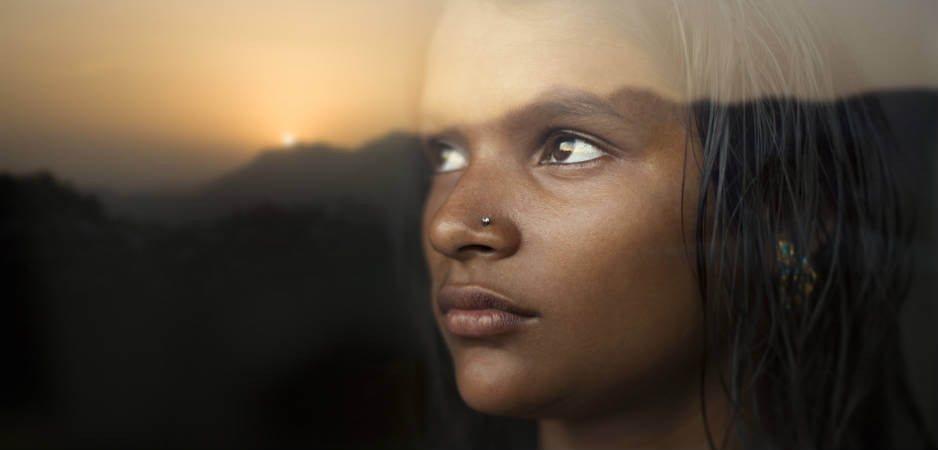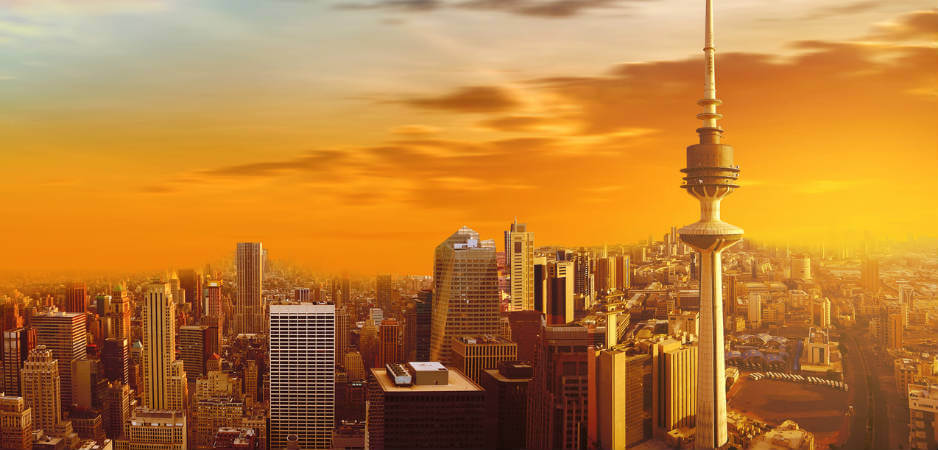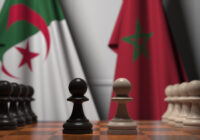Empires leave behind a poisoned chalice not only for the subjects, but also for the rulers as the brouhaha over the French colonization of Algeria demonstrates.
Even by the standards of 2017, this has been an eventful week. US National Security Adviser Michael Flynn resigned because it turns out he discussed US sanctions with Russia before Donald Trump took charge as president. This bombshell was minor compared to California’s “bombogenesis” or “weather bomb,” one of the strongest storms to hit the state in years that brought torrential rains, caused floods, led to power outages and killed at least four people.
Even as the US dealt with political and weather bombs, Pakistan, its longstanding ally, suffered a bloody week. A series of deadly militant attacks over five days killed more than 100 people across the country. The most spectacular attack was a horrific bomb attack at the 800-year-old Lal Shahbaz Qalandar Sufi shrine. This place of worship has long been venerated by hundreds of millions of people across the Indian subcontinent. Even irreligious Pakistanis and Indians have grown up listening to the devotional music of “Dam Mast Qalandar.”
The Islamic State claimed responsibility for the attack. This is a frightening prospect for Pakistan, which was envisaged as a nation state for all Muslims of the Indian subcontinent. Instead, it has become a country where those who follow a more syncretic version of Islam such as the Sufis find themselves under threat. It has long been an open secret that the increasing Sunni radicalization of Pakistani society is sending tremors down liberal and secular spines.
In the August 28, 2016, edition of The World This Week, this author examined how a country created by a Shia Muhajir is being torn apart by “ethnic, sectarian and class divides as poverty, inequality, injustice, corruption and repression enrage an increasingly urbanizing population.” In 2013, Anwar Akhtar mentioned in an article at Fair Observer that Pakistan had become “a tough country for minorities and everyone else.” The most recent spate of violence is only the latest manifestation of the unresolved contradictions of Pakistan.
“CRIME AGAINST HUMANITY”OR “CULTURAL EXCHANGE”
Pakistan is not the only country living through unresolved contradictions. None other than la grande nation is experiencing convulsions about its past. Emmanuel Macron, the frontrunner in the upcoming French presidential elections, gave an explosive interview in Algiers. He said French actions in Algeria were “genuinely barbaric, and constitute a part of our past that we have to confront by apologizing.” Macron also called the French colonization of Algeria a “crime against humanity.”
Needless to say, Macron’s comments have sent his opponents in a tizzy. François Fillon, the candidate for les Républicains, France’s center-right party, denounced “this hatred of our history, this perpetual repentance that is unworthy of a candidate for the presidency of the republic.” More was to follow. Wallerand de Saint-Just of Marine Le Pen’s far-right Front National accused Macron of “shooting France in the back.” Le Pen’s supporters have labeled Macron as a traitor and have been protesting vociferously at his events.
In keeping with the tradition of the far-right, Le Pen’s supporters venerate the memory of the French Empire. Others look back at the imperial days with nostalgia if not veneration. In a passionate speech on August 28, 2016, Fillon likened French colonization to “cultural exchange” between Europe, Africa, Asia and North America. Unsurprisingly, Fillon is standing on a conservative and Catholic program. The French of the Fillon sort are still beholden to the idea of mission civilisatrice, which simply means that the ancestors of Fillon had a moral duty to conquer pesky natives to spread civilization.
In a brilliant paper in March 1986, Matthew Burrows chronicled the French cultural policy of mission civilisatrice in the Middle East from 1860 to 1914. Burrows points out that both Catholics seeking to save souls in the region and Jews fighting against the persecution of Muslim rule in North Africa set up schools not only to teach the French language, but also the methods of la grande nation. At this time, the French held that their language had incomparable spiritual qualities and an innate logic or rationality unrivaled by any other. In a long superseded superpower, this belief still holds sway and Fillon’s candidacy seeks to uphold these traditional values that many find under threat.
Macron and Fillon are engaging in a battle of ideas that continues to rage as ferociously as ever. Many hold the colonization of vast parts of the earth by European conquerors to be crimes against humanity. Every year, the US celebrates Thanksgiving with fuzzy warmth and much bonhomie. Americans pretend the Puritans and Indians or, more accurately, Native Americans got together to have a jolly good feast and lived happily ever after. The truth is the Native Americans turned up for the feast and found themselves on the menu. White settlers from Europe created the US on the backs of genocide for the red man and slavery for the black man.
The record of Europeans all around the world is bloody and brutal. The effects of Spanish colonization of Latin America last till today. The heirs of conquistadores eat foie gras while the descendants of natives struggle to eke out an existence. None other than the World Economic Forum that gathers at Davos and can hardly be called Marxist or Gandhian is fretting about Latin America being the world’s most unequal region. The tale of European brutalities in Africa, the Middle East and Asia are too well known to bear repetition.
 Yet there is more to the legacy of empires than imposing their gods, firing their guns and stealing the natives’ gold. Vietnam might have humiliated the French at Dien Bien Phu, but this now communist country still retains much of French civil law. Kenya, South Africa, India and Malaysia follow penal codes penned by their former British masters. So, perhaps there is something to Niall Ferguson’s robust defense of European empires. In his memorable words, “Did Senegal ultimately benefit from French rule? Yes, it’s clear.”
Yet there is more to the legacy of empires than imposing their gods, firing their guns and stealing the natives’ gold. Vietnam might have humiliated the French at Dien Bien Phu, but this now communist country still retains much of French civil law. Kenya, South Africa, India and Malaysia follow penal codes penned by their former British masters. So, perhaps there is something to Niall Ferguson’s robust defense of European empires. In his memorable words, “Did Senegal ultimately benefit from French rule? Yes, it’s clear.”
Ferguson and Fillon believe the British and the French did better than native rulers in developing economic resources. They raised the standard of living, improved public health, increased life expectancy, introduced rule of law and brought economic if not political freedoms. In Ferguson’s words, “the counterfactual idea that somehow the indigenous rulers would have been more successful in economic development doesn’t have any credibility at all.”
SO, WHAT DO THE ALGERIANS THINK?
Algerians find it hard to forget that France ruled their country for 132 years. Algerian school textbooks repeatedly emphasize the horrors of French colonization. The French took away Algerian land, property, language and culture. For all the talk of mission civilisatrice, barely 15% of Algerians were going to school in 1954. As Burrows points out, les colons, European settlers who were later known as pieds noirs, actively worked against the assimilation and education of the native Muslim population. Algerians were always indigènes, or later, français musulmans, and never the equal of the French.
The brutal and bitter Algerian War of Independence lasted from 1954 to 1962. Algerian historians estimate that the French slaughtered 1.5 million natives. Naturally, the French have come up with a more conservative figure. Yet it is now an open secret that the so-called purveyors of mission civilisatrice responded to the Algerian revolt with ratissage, the “raking over” of towns and villages through bombing, arrests and torture. In fact, the French took Algerian women to bordels mobiles de campagne or mobile field brothels of none other than the 1954 battle of Dien Bien Phu. Naturally, Algerians are unlikely to have fond memories of their women being used as French sex slaves.
Yet Algerians like Indians and other colonized people do not view France through the monochromatic prism of good and evil. Baya Hocine, a young Algerian girl sentenced to death by colonial authorities, paid tribute to the French Revolution of 1789 as a source of her inspiration in her prison diary. Even as Algerians fought for independence, they used the very French ideals of liberty, equality and fraternity as their inspiration. Today, the Algerian state rests on the foundations that the French laid down from its administrative machinery and military apparatus to its education system and the laws of the land.
Independence after 132 years has not resulted in democracy, rule of law or civil rights for most Algerians. Those in power have rigged elections, locked up dissenters and clamped down on basic freedoms such as that of speech. The regime remains repressive and some argue that civil war broke out not in 1992, but in 1962 itself as soon as the French left. Even as Algerians watch Macron and Fillon arguing about the role of France in Algeria, they are denied the opportunity to debate their own past, present and future.
Worse, the Algerian ruling elite is irredeemably corrupt and utterly lacking in noblesse oblige. It monopolizes education, housing, jobs and all other resources for itself. For Algerians who are not part of the elite, France’s fabled social security system with public housing, health care and unemployment benefits has a rather seductive charm. Many joke that if there was a referendum today, they would vote for a return to French control.
Obviously, this is dark humor. Algerians are unlikely to want French administrators lording over their land. They just want an end to mismanagement, corruption and repression that have plagued their country. Of course, they want jobs too. It is for this reason that they flock to France in droves even though many know they might be trapped in dead-end jobs and live in dreadful banlieues. In France, even third generation Algerians are considered immigrés who are not entirely French. Anti-racism laws exist dime a dozen, but an Arab surname is a formidable barrier to a decent job. Laws, as Peter Isackson often remarks, cannot change culture.
In a 1988 article for The New York Times, Youssef Ibrahim quoted a diplomat who attributed the then-violence as the latest proof that militant Arab socialist governments like Algeria, Libya and Syria had failed to give their populations anything more than the “standard miserable formula of empty rhetoric, empty stores and empty pockets.” Ibrahim observed that unemployment had crossed 25% and foreign debts had soared to $21 billion. Food, shelter and even water were in scarce supply. The education system was a disgrace. Islamic fundamentalism was on the rise.
It seems that nothing has changed since 1988 except that things have got worse. Libya and Syria have disintegrated into civil war even as Algeria continues to gun down militants. Its elites remain ensconced in luxury while its people live in misery. President Abdulaziz Bouteflika is aging and the Algerian economy is ailing, making jobs scarcer than ever. To use the words of another diplomat Ibrahim quoted, such is the state of the country that “the people sweeping the streets of Paris are Algerians who are there because they cannot find any work at home.”
Yet blaming the Algerian elite alone for the perilous plight of the country would be disingenuous. The French have long aided Algeria’s leaders in pilfering the wealth of their country. Fillon is currently embroiled in a sordid scandal for paying public money to his Welsh-born wife and two of his children for work they did not do. The amount involved is over $950,000 or €900,000 to be exact. It is chump change in comparison to the ill-gotten gains that corrupt dictators stash away in Paris with the active help of the French establishment.
Algerians recognize that their state is rotten. Most may despair of their current plight, but they recognize that they owe the French a debt for some of their ideals if not their actions. Yet they would like la grande nation to apologize for more than a century of plundering, pillaging, raping, torturing and killing when Algeria was a jewel in the French crown, if not for aiding and abetting the corruption of their elites thereafter.
Macron’s ratings might have dropped when he excoriated France’s colonial record, but he is the first presidential candidate to state an inconvenient truth. The young centrist politician has been courageously candid about a dark chapter in France’s past. It remains to be seen if his country is on the same page as him.
*[You can receive “The World This Week” directly in your inbox by subscribing to our mailing list. Simply visit Fair Observer and enter your email address in the space provided. Meanwhile, please find below five of our finest articles for the week.]
Helping Girls Escape the Sex Industry
Civil society steps in to pick up where governments fail to support women and children exploited in the sex industry.
Every day, young girls are forced into commercial sexual enterprises all over the world, leaving them physically and emotionally anguished. In the red light district of Kolkata, there are approximately 10,000 sex workers, 40% of these children. Just like many metropolitan areas across India, Kolkata is crowded and noisy, with millions wandering the streets. In the backdrop of the constant clamor of the city, among these ordinary people, are the screams of young girls, some of whom are thousands of miles from their homes, alienated, alone and afraid.
Sex trafficking is one of the fastest growing criminal enterprises, with approximately 20.9 million adults and children sold into sexual servitude globally. Moreover, children make up a significant portion of those exploited—approximately 2 million—predominantly young girls, sold into the commercial sex trade. This practice transcends international borders and… Read more
Russia Moves to Silence Alexei Navalny
Russia will keep sidelining the opposition with ever-growing impunity in the years to come.
In what has become an all-too-common pattern, Russian authorities have once again neutralized the only viable candidate who might have stood a chance against President Vladimir Putin come the 2018 elections. Much to the bitter disappointment of Western observers, Alexei Navalny, the popular anti-corruption campaigner and dogged critic of Putin and his entourage, was found guilty of embezzlement and handed a five-year suspended sentence.
On February 8, a Russian district court in Kirov, 800 kilometers northeast of Moscow, found Navalny guilty of defrauding a state timber company. In addition to a suspended sentence, the court handed him a fine of 500,000 rubles ($8,700). The decision has been a long time coming, as Navalny was originally convicted in 2013. Then, the judge ordered his immediate imprisonment, but reversed the decision and released him pending appeal after rioting broke out in the streets of Moscow… Read more
Let’s Head to the Moon
The moon is a safer bet, not Mars. Well, at least for now.
I still remember the night when my siblings, my father, some workers on the farm and I sat around a fire on a cold night in the middle of a jungle, and listened to a decrepit old radio. It was the late 1960s in western India and we were all very excited.
We were trying to listen, amid heavy static, to the live broadcast of a NASA capsule splash-landing in the ocean after a journey around the moon. We were amazed and awestruck that NASA and the United States could send a craft hundreds of thousands of miles into space and still have it come back to Earth and land in a predesignated, three-mile radius—and do that safely. Our respect for what the US could do, which was already fairly high, increased immensely. NASA was amazing, and it symbolized the United States for many… Read more
Abuse of Rohingya Must Be Investigated
There is too little access and too little known about possible ongoing abuses in Rakhine State.
International humanitarian and human rights groups, including Refugees International, have long called for an independent international investigation into abuses of the Rohingya population and the blockage of life-saving aid in Myanmar’s Rakhine State. The government of Myanmar’s response has been one of dismissal and denial. But with a devastating new United Nations (UN) report and growing international pressure, that call has gained new traction.
On February 3, 2017, the United Nations Office of the High Commissioner for Human Rights (OHCHR) released a report citing systematic rape and sexual violence, killing of babies and young children, and destruction of homes and food sources in attacks by Myanmar security forces against the Rohingya Muslim minority population. The report criticizes the disproportionate response by the Myanmar military to the October 2016 attacks carried out by a group of Rohingya that left 10 border officers dead… Read more
Seven Pillars of the New Kuwait
Kuwait unveils an ambitious plan to diversify its economy.
Mired in an era of cheap oil, Kuwait is looking for answers. Along with its petrochemical-rich neighbors, Kuwait has been dealing with this harsh reality since 2014. Throughout previous decades, Kuwaitis consistently relied on oil to fund government spending and to grow their immense sovereign wealth fund. The Kuwait Investment Authority (KIA) holds nearly $592 billion in assets.
When global oversupply caused prices to drop below $40 per barrel, Kuwaiti officials had to accept an ineluctable truth. Their state could no longer rely on commodity prices as the sole source of wealth for government coffers. Like Saudi Arabia, Kuwait has unveiled a plan, dubbed Kuwait 2035 and marketed as the “New Kuwait.” Sheikh Mohammad Abdullah Al Mubarak Al Sabah, the minister of state for cabinet affairs, described the plan as a set of “initiatives that will transform our economy, create jobs, attract foreign direct investments and facilitate knowledge transfer… Read more
The views expressed in this article are the author’s own and do not necessarily reflect Fair Observer’s editorial policy.
Photo Credit: Mark Rubens
Support Fair Observer
We rely on your support for our independence, diversity and quality.
For more than 10 years, Fair Observer has been free, fair and independent. No billionaire owns us, no advertisers control us. We are a reader-supported nonprofit. Unlike many other publications, we keep our content free for readers regardless of where they live or whether they can afford to pay. We have no paywalls and no ads.
In the post-truth era of fake news, echo chambers and filter bubbles, we publish a plurality of perspectives from around the world. Anyone can publish with us, but everyone goes through a rigorous editorial process. So, you get fact-checked, well-reasoned content instead of noise.
We publish 2,500+ voices from 90+ countries. We also conduct education and training programs
on subjects ranging from digital media and journalism to writing and critical thinking. This
doesn’t come cheap. Servers, editors, trainers and web developers cost
money.
Please consider supporting us on a regular basis as a recurring donor or a
sustaining member.
Will you support FO’s journalism?
We rely on your support for our independence, diversity and quality.











